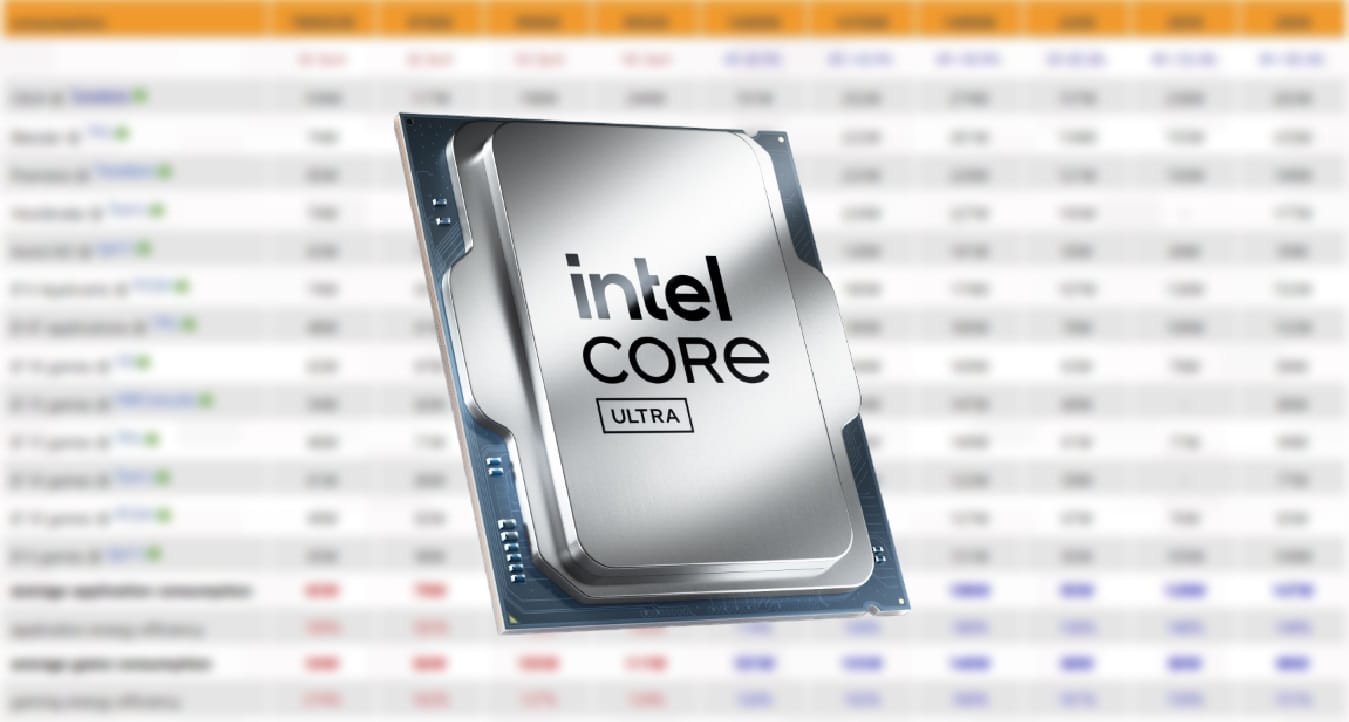The introduction of the Intel Arrow Lake Core Ultra 200S CPUs has stirred up quite a bit of debate. On one side, these new processors don’t really offer significant performance improvements and actually lag behind in gaming performance. On the flip side, Intel has indeed kept its word regarding a substantial boost in efficiency.
Mixed Reviews
With a multitude of reviews flooding in, it can be quite challenging for consumers to accurately assess the true capabilities of these products. Different publications have their own methods for testing CPUs, leading to varied results. Luckily, 3DCenter has gathered 20 reviews of the Arrow Lake launch, providing a comprehensive overview of Intel’s latest desktop processors.
Performance Insights
From what we can gather, the Arrow Lake CPUs show a slight but not particularly impressive increase in application performance. According to the data from 3DCenter, the top-end Core Ultra 9 285K is about 7% faster than the Core i9-14900K, but it is also 3% slower than the Ryzen 9 9950X.
Dropping down the lineup, the Core Ultra 5 245K and Core Ultra 7 265K present performance boosts of 3.9% and 4.6% over the Core i5-14600K and Core i7-14700K, correspondingly. In addition, the Core Ultra 5 245K is 3.5% faster compared to the Ryzen 7 9700X, while the Core Ultra 7 265K matches the Ryzen 9 9900X’s performance.
Gaming Performance Woes
In a nutshell, Intel’s Arrow Lake chips offer a marginal enhancement over the 14th-gen models, but they lack hyperthreading. Unfortunately, the gaming performance takes a hit, with these CPUs generally underperforming compared to both their predecessors and the competing Zen 5 series.
For example, the Core Ultra 9 285K is about 6% behind the Core i9-14900K and trails the Ryzen 9 9950X by 4.2%. It also cannot compete with the leading gaming processor, the Ryzen 7 7800X3D, which is a staggering 16% faster. This news is a letdown for Intel enthusiasts, particularly with the recent announcement of the Ryzen 7 9800X3D, which claims a 20% increase in gaming performance over the Core Ultra 9 285K.
The Core Ultra 7 265K and Core Ultra 5 245K don’t perform much better either, with the former showing a 7% drop against the Core i7-14700K and the latter lagging by 4% against the Core i5-14600K. Furthermore, both the Ryzen 7 9700X and Ryzen 9 9900X outperform their Intel counterparts by 10% and 3.3%, respectively.
Future Considerations
In short, Intel supporters hoping for their favorite brand to surpass AMD will likely have to be patient for upcoming architectures like Panther Lake and Nova Lake, as Intel currently lacks a competitive response.
One area where the Core Ultra 200S CPUs excel is in power consumption. Thanks to various enhancements, such as a new process node and the removal of hyperthreading, Intel has achieved significant reductions in power usage compared to the 14th-gen Raptor Lake CPUs. This topic has been explored in depth in our review of the Core Ultra 9 285K.
Efficiency Gains
According to 3DCenter’s data, the Core Ultra 9 285K has an average power consumption of just 147 W during application workloads, compared to 198 W for the Core i9-14900K and 160 W for the Ryzen 9 9950X. This lower energy usage allows the flagship Arrow Lake chip to boast 44% better energy efficiency in applications compared to the Core i9-14900K and 6% better against the Ryzen 9 9950X.
The efficiency of Arrow Lake is also clear in gaming scenarios, where the Core Ultra 9 285K consumes roughly 88 W on average, outperforming both the Core i9-14900K (140 W) and the Ryzen 9 9950X (111 W). The only CPU that is faster in gaming and uses less power is the Ryzen 7 7800X3D, which stands out at just 56 W.
Conclusion
Turning to the Core Ultra 5 245K and Core Ultra 7 265K, these Arrow Lake models show application efficiency gains of 33% and 42% compared to the Core i5-14600K and Core i7-14700K, respectively. Nevertheless, the Ryzen 7 9700X remains more efficient than the Core Ultra 5 245K by 16%, and the Ryzen 9 9900X is still slightly behind the Core Ultra 7 265K by 9%.
In conclusion, the gaming power consumption for both the Core Ultra 5 and Ultra 7 is lower than that of their 14th-gen counterparts and AMD’s Zen 5 processors, registering at only 68 W and 80 W, respectively.
To summarize, Intel’s Arrow Lake chips seem to be aimed at users who are either upgrading from older architectures or are in search of processors that emphasize efficiency over raw performance. For everyone else, better alternatives are readily available in the market.
Buy the Intel Core Ultra 5 245K | Ultra 7 265K on Amazon
3DCenter





Leave a Reply